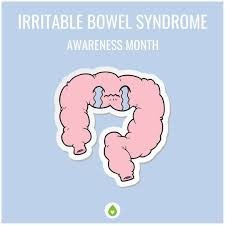
posted 2nd April 2025
Irritable Bowel Syndrome (IBS) is a common gastrointestinal condition that affects millions of people in the UK. It involves a group of symptoms that impact the digestive system, leading to discomfort and disruption in daily life. While IBS is not a life-threatening condition, it can significantly affect a person’s quality of life.
What is IBS?
IBS is a chronic disorder that affects the large intestine, causing a range of digestive issues. It is considered a functional disorder, meaning that the gut appears normal, but its function is disrupted. The exact cause of IBS is not fully understood, but factors like stress, diet, genetics, and an imbalance in gut bacteria may contribute to its development.
Signs and Symptoms - The most common symptoms of IBS include:
- Abdominal pain or cramping, often relieved after passing stools
- Bloating and a sensation of fullness
- Diarrhoea or constipation, or alternating between both
- Changes in stool consistency or appearance
- Mucus in stools
Symptoms can vary from mild to severe and may come and go. While some people experience IBS flare-ups only occasionally, others may have persistent symptoms.
Who is Affected?
IBS is estimated to affect around 1 in 5 people in the UK, with women being more likely to develop the condition. It often starts in early adulthood, although it can develop at any age.
Managing IBS
While there is no cure for IBS, the symptoms can often be managed with dietary changes, stress management, and medications. Many individuals find relief from a low FODMAP diet, which reduces certain fermentable carbohydrates that can cause digestive distress. Regular exercise, adequate hydration, and mindfulness practices can also help control symptoms.
If you're experiencing persistent digestive issues or suspect you might have IBS, it's important to consult a healthcare professional for a proper diagnosis and tailored treatment plan.
IBS is a widespread and often misunderstood condition in the UK, but with the right approach, people can effectively manage their symptoms. Understanding the triggers and working with a healthcare provider can help improve quality of life for those living with IBS.





